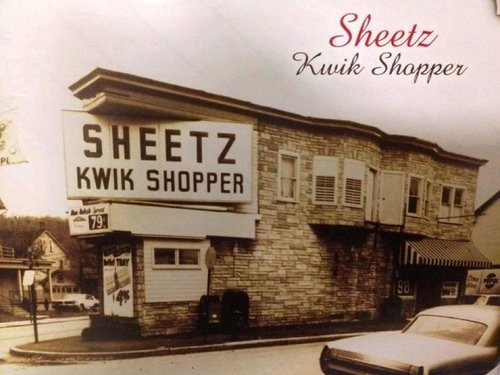Originally published on Workers Stories. A site ran by the West Virginia IWW.
I used to work at Sheetz when I was in college. For those of you who don’t know, Sheetz is a gas station that sells food, but their marketing scheme tried to change the dynamics of that into a fast food location that also happened to sell gas, candy, and made-to-order drinks. Sheetz was one of the better jobs you could get in my town because they paid a few bucks higher than minimum wage and according to my friends who worked there at the time, scheduling was better. Only problem was that they made you take a drug test.
That was my entry into the humiliation that was working at Sheetz.
I don’t do drugs, so I didn’t worry about the drug test because I had something to hide. I didn’t like waiting at a drug-testing agency, inside a shopping mall, with everyone walking by and looking at me thinking I was getting drug tested because I had done something wrong. The woman who worked there snatched the paper report out of my hands, gave me a small plastic cup, and pointed to the door. Stupidly, I had gone to the bathroom before I left home, so I had to wait even longer, much to the anger of the woman who worked there. I remember drinking TONS of water from the water cooler hoping to pee faster, but even then, it took me at least an hour. Worst of all, I couldn’t leave the location once I got there – it was their policy, to prevent people from trying to sneak in someone else’s urine. All of this for a job that paid around $10/hour.
After that debacle had ended, we had to go through our mandatory training session. I actually liked these because I could sit and pretend to do work without actually having to do any actual work. I sat at a computer, going through training modules (slowly), answering questions while others around me made fries, or burgers, or hot dogs, or salads, or coffee, or cleaned. I knew it was something I was going to have to do soon enough, and for someone new to this type of work, it seemed daunting. But I remember going through the computer questions and seeing a section on why Sheetz discouraged unions. It’s the typical corporate, union-busting strategy but I had never seen it before. Basically, Sheetz calculated that they would lose less money by paying slightly higher than competitors and discouraging unionization that they would paying minimum wage and being known as a union-busting workplace. You shouldn’t join a union, according to Sheetz, because they can pay you more than other similar jobs and the atmosphere is supposed to be “cooler” or “hipper,” so why would you need a union?
The other thing that Sheetz had done was to make the workers feel as though they had it better than management. Workers got an unpaid, half-hour lunch break and no matter how bad the rush was, we could sit and enjoy our lunch break uninterrupted. Most of us would eat in our cars so we didn’t have to deal with the smell of that place during lunch, too, watching Netflix or something on our phones. It was a good time to relax before having to head back to a job we all hated. Management, however, only got a fifteen minute break and they had to have their headset on at all times, so if something happened and they needed to stop eating to deal with it, they did. Workers at our store felt sorry for our head manager, who had done a good enough job at being humorous, deferential, and overall respectful to us. We saw him go back to work after just starting his lunch, going back to eat some (by then) cold soup quickly, and returning to work his twelve-hour shift (5 days a week).
Since many of us were in college at the time, seeing how management was treated by their higher ups made us feel grateful that when we graduated, we would (hopefully) not have to endure that type of job for the rest of our lives. Maybe that was their plan all along? Make life harder on middle management, make the college kids feel special by comparison, and then discourage unionization because we saw this as a temporary job.
I remember getting berated by one of our customers for putting the toilet paper in the slot incorrectly. He got in my face, yelling at me angrily, telling me how dumb I was that I couldn’t follow a simple command. Our store’s beloved manager came by and helped me out. He told the customer to leave if he didn’t stop yelling, and that made him stop.
Another time, I was cleaning up some nastiness in the bathroom that was reported to us (I’ll spare you the details) and throughout that day, our head manager would radio in to us and jokingly say, “Welcome to Shitz, I mean, Sheetz,” to make light of an otherwise disgusting situation.
We didn’t see our manager as our boss. We saw him as someone only slightly older than us who happened to give us a paycheck, but who was an otherwise good guy. We were sad to see how little time he had to himself during the day, especially during his lunch. It was really a good strategy on the part of Sheetz corporate office. When you don’t see your manager as your boss, when you sympathize with their plight because of how crummy their conditions are because of their boss, you lose your sense of solidarity with one another.
They probably never even needed that anti-union bit in their video. That was never on our radar. Sheetz had already done enough ground work to prevent union talk at the interpersonal level.

